In this unique journey through Mumbai, travelers encounter the Dabbawalas, who exemplify precision and dedication in delivering lunchboxes across the city. After an immersive train ride that captures the essence of local life, they visit Dhobi Ghat, where the rhythm of washing clothes unfolds against a backdrop of bustling energy. The exploration continues into Dharavi Slum, revealing a community thriving against odds. Each stop offers a glimpse into Mumbai’s multifaceted culture, but what truly lies beneath the surface of these experiences might surprise anyone willing to discover more.
Key Points
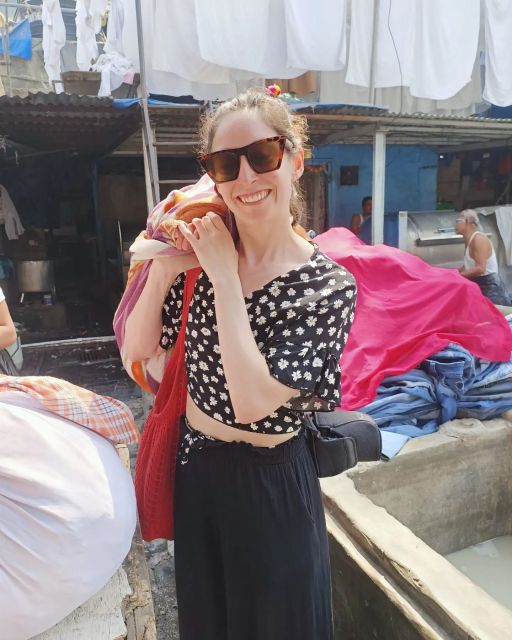
- Experience a 30-minute meeting with Dabbawalas to learn about their efficient lunchbox delivery system in Mumbai.
- Enjoy a brief local train ride to reach Dhobi Ghat, witnessing bustling commuter life.
- Observe the world’s largest open-air laundry at Dhobi Ghat for 30 minutes, appreciating traditional craftsmanship.
- Explore Dharavi Slum on a two-hour tour, focusing on community life and local entrepreneurship.
- The tour includes knowledgeable guides, train tickets, and hotel pickup/drop-off for a seamless experience.
Experience Overview
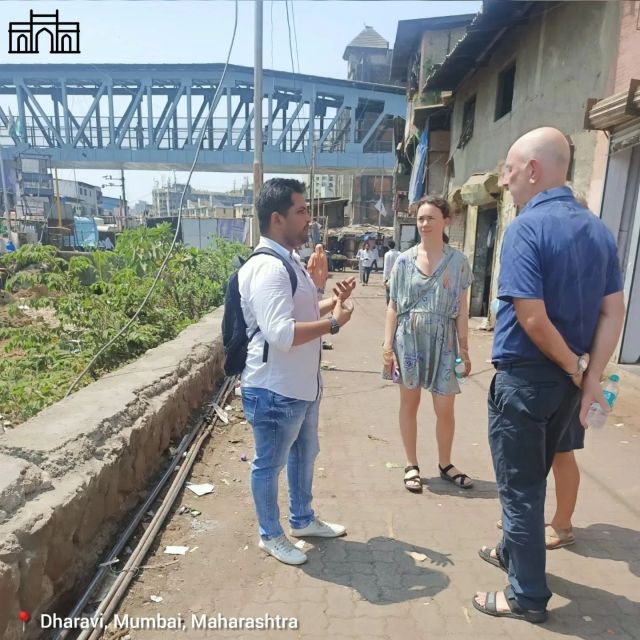
The ‘Visit Dhobi Ghat & Dharavi Slum’ experience offers an immersive glimpse into Mumbai’s vibrant culture, featuring a unique blend of local interactions and iconic sights.
Participants embark on a four-hour journey, starting with a meeting with the legendary Dabbawalas, where they learn about the intricate lunchbox delivery system.
A local train ride transports them through Mumbai’s bustling commuter life, before arriving at Dhobi Ghat, the world’s largest open-air laundry. Here, visitors witness the organized chaos of laundry washing, showcasing local craftsmanship.
The adventure culminates in Dharavi, where they explore the vibrant community, small-scale industries, and the entrepreneurial spirit of its residents.
This experience not only educates but also fosters a deeper appreciation for Mumbai’s dynamic culture.
You can also read our reviews of more tours and experiences in Mumbai.
Detailed Itinerary
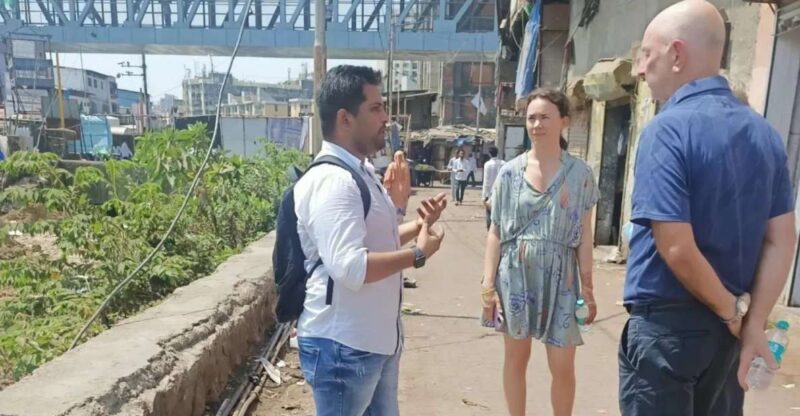
Embarking on this four-hour journey, participants first gather at the Chemist Stall near Churchgate Railway Station, setting the stage for an unforgettable exploration of Mumbai’s cultural landscape.
They kick off with a 30-minute meeting with the Dabbawalas, learning about their iconic lunchbox delivery system.
Next, a brief local train ride immerses them in Mumbai’s bustling commuting culture.
At Dhobi Ghat, they spend 30 minutes observing the world’s largest open-air laundry, soaking in its vibrant atmosphere.
After another short train ride, participants explore a two-hour Dharavi Slum tour, gaining insights into community life and entrepreneurial spirit.
The experience concludes at Sai Multispeciality Hospital & Research Centre, leaving participants enriched and enlightened.
Cultural Significance
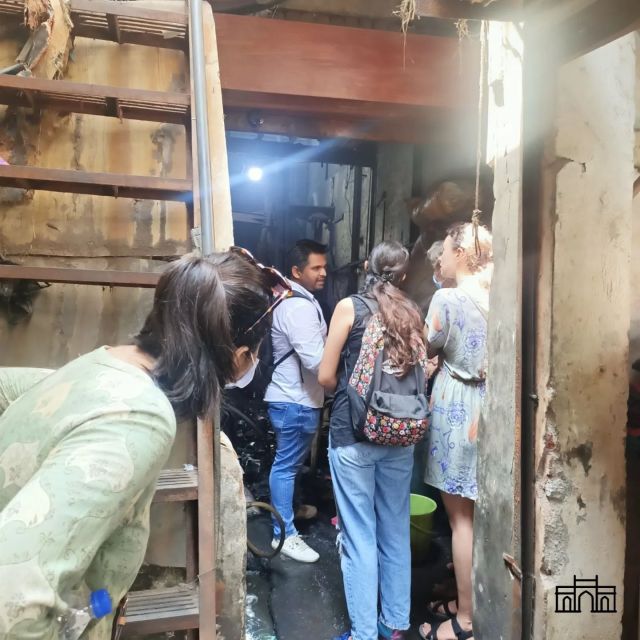
Understanding the cultural significance of Mumbai’s Dabbawalas, Dhobi Ghat, and Dharavi reveals a rich tapestry of community resilience and innovative practices that define the city’s identity.
The Dabbawalas, with their efficient lunch delivery system, exemplify teamwork and precision, showcasing the power of grassroots organization.
Dhobi Ghat, the world’s largest open-air laundry, highlights traditional craftsmanship, where countless Dhobis work tirelessly, preserving age-old practices while adapting to modern demands.
Meanwhile, Dharavi stands as a testament to entrepreneurial spirit, where residents create thriving small-scale industries amidst challenging conditions.
Together, these cultural landmarks reflect Mumbai’s vibrant social fabric, illustrating how diverse communities contribute to the city’s unique character and dynamic economy, fostering a sense of unity and pride among its inhabitants.
Highlights of Dabbawalas
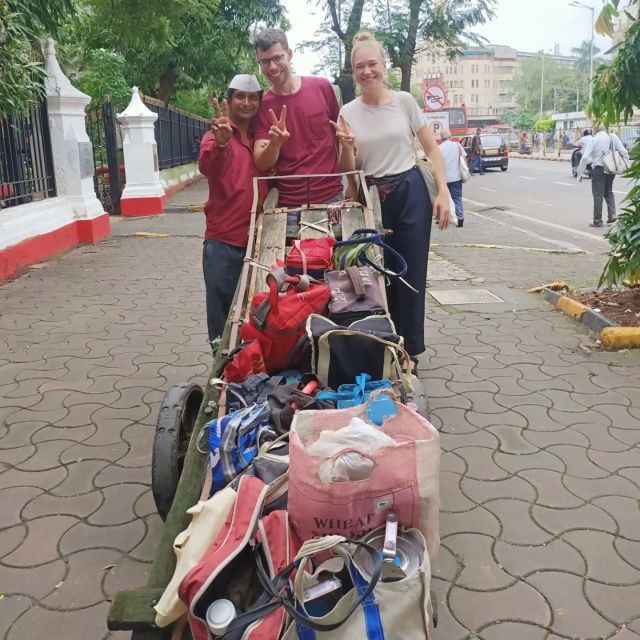
Dabbawalas, renowned for their remarkable lunchbox delivery system, efficiently transport thousands of meals across Mumbai each day, showcasing a unique blend of tradition and innovation. Their impressive logistics rely on color-coded systems and precise timing, ensuring that every meal reaches its destination warm and on time.
| Key Feature | Description |
|---|---|
| Delivery System | 5,000+ Dabbawalas operate daily |
| Meal Transportation | 200,000+ lunchboxes delivered daily |
| Accuracy Rate | 99.99% delivery accuracy |
| Cultural Impact | Integral part of Mumbai’s identity |
This incredible operation not only sustains local businesses but also fosters a sense of community among the city’s diverse population. The Dabbawalas embody Mumbai’s spirit of resilience and dedication.
More Great Tours NearbyExploring Dhobi Ghat
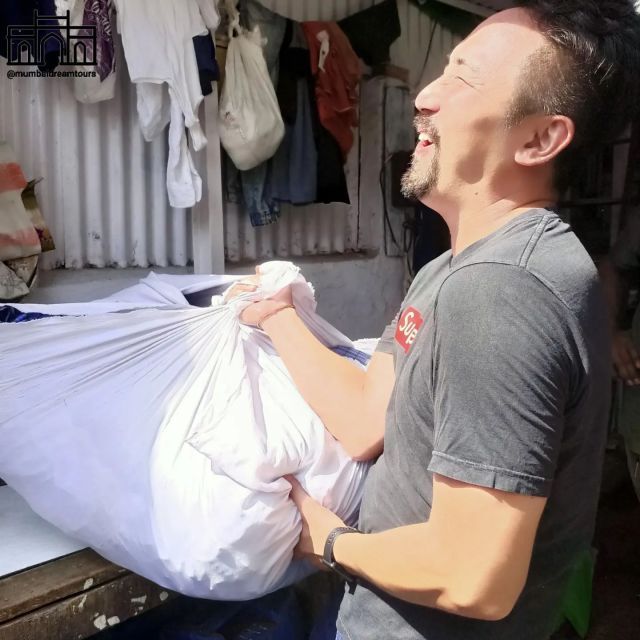
Visitors to Mumbai can’t miss the vibrant spectacle of Dhobi Ghat, where thousands of clothes are washed daily in the world’s largest open-air laundry, showcasing a fascinating blend of labor and tradition.
Here, skilled Dhobis meticulously scrub, rinse, and hang garments to dry under the sun, creating a captivating tapestry of colors. Each worker possesses a unique technique, passed down through generations, making this place a living museum of craftsmanship.
The rhythmic sounds of water splashing and clothes being beaten on stones fill the air, enhancing the experience. As visitors stroll through the ghat, they gain insight into the hard work and dedication that goes into this age-old profession, making it a truly unforgettable part of Mumbai’s cultural landscape.
- Mumbai Private Sunrise/Sunset Sailing Boat Tour
- Dharavi Small-Group Mumbai – Walking Tour With Guide and Optional Add-Ons
- 1-Day Trip to Taj Mahal and Agra From Mumbai With Both Side Commercial Flights
- Private Full-Day Mumbai Sightseeing Tour With Dharavi Slums
- Dharavi Slum Tour in Mumbai With Combo Packages & Transfers
- Private Guided Walking Tour in Bandra Queen of Suburbs
Insights Into Dharavi
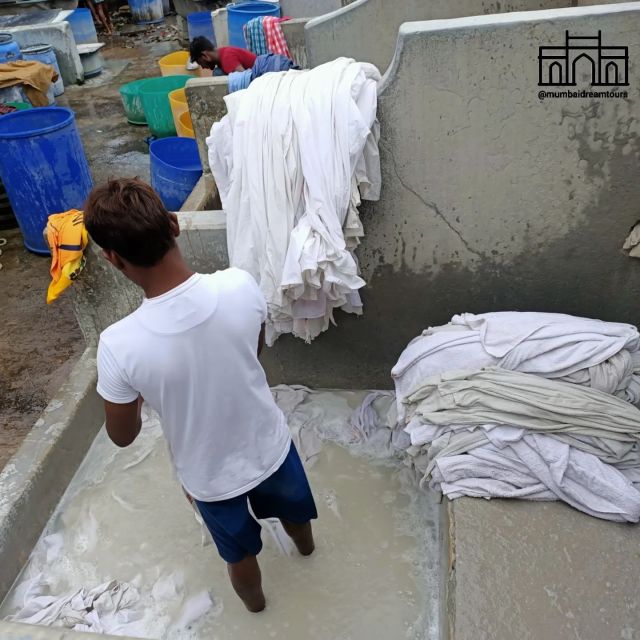
What makes Dharavi a remarkable example of resilience and entrepreneurship is its thriving micro-economy, where countless small businesses flourish amidst the challenges of urban life.
In this densely populated area, residents craft handmade goods, from pottery to textiles, showcasing their skills and creativity. Street vendors and small shops provide essential services and products, fueling local commerce.
This vibrant community not only contributes to Mumbai’s economy but also fosters a strong sense of identity and collaboration among its members.
On top of that, Dharavi’s diverse population reflects a rich tapestry of cultures, each bringing unique traditions and innovations.
Visitors are often surprised by the ingenuity displayed, proving that even in the toughest environments, hope and determination can lead to success and growth.
Responsible Travel Practices
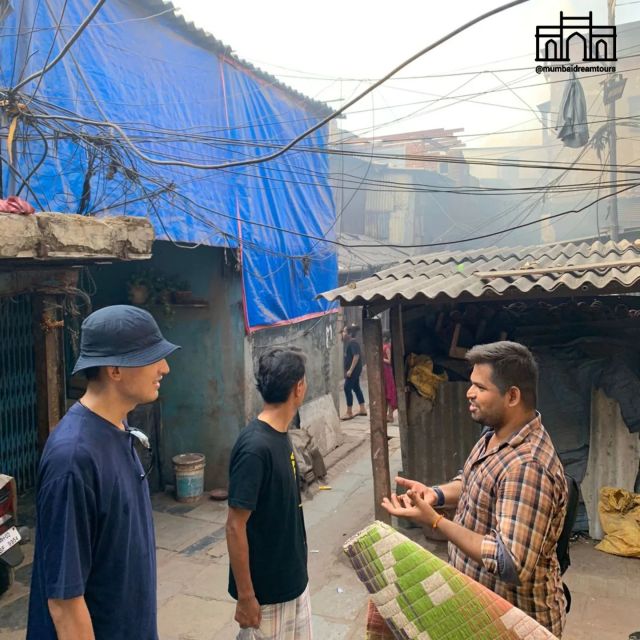
Understanding the vibrant community of Dharavi also highlights the importance of responsible travel practices that respect and support the local population. By engaging with the community thoughtfully, travelers can enhance their experiences while minimizing negative impacts.
| Practice | Importance | Example |
|---|---|---|
| Engage Locally | Supports local businesses | Purchase handmade goods |
| Respect Privacy | Maintains dignity of residents | Avoid intrusive photos |
| Follow Guidelines | Ensures safety and cultural sensitivity | Listen to your guide |
These practices encourage a mutual respect between visitors and locals, creating a positive travel experience. By prioritizing responsible tourism, travelers contribute to a sustainable future for the communities they visit, ultimately enriching their own journey.
Booking and Reservations
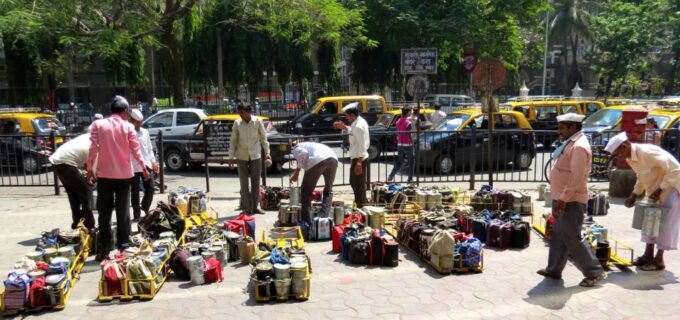
Booking a tour to explore Dhobi Ghat and Dharavi Slum is both simple and flexible, allowing travelers to reserve their spots without any upfront payment.
They can easily check availability for their preferred dates through the tour provider’s website.
With a group size limited to 15 participants, travelers can enjoy a more personalized experience.
The cancellation policy is generous, offering free cancellation up to 24 hours in advance for a full refund, which adds to the peace of mind.
Prices start at just €27.27 per person, making it an affordable option.
Plus, the tour includes a knowledgeable English-speaking guide, train tickets, and even hotel pickup and drop-off, ensuring a hassle-free adventure in Mumbai.
Frequently Asked Questions
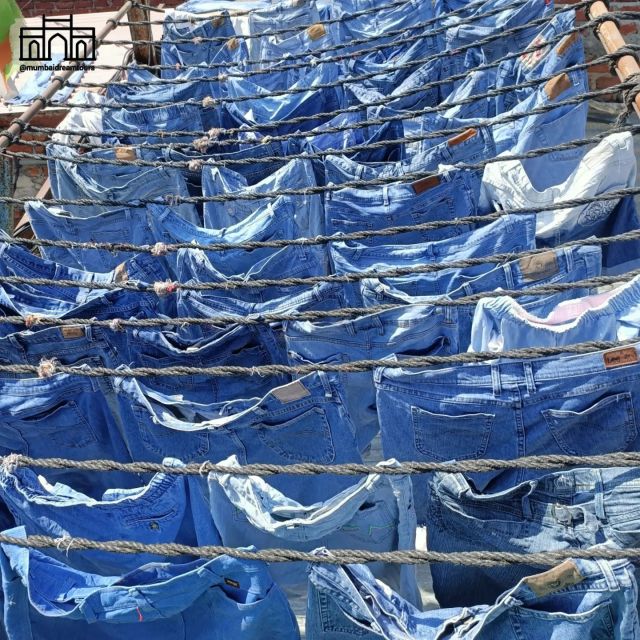
What Should I Wear for the Tour?
For the tour, participants should wear comfortable clothing and sturdy shoes. Lightweight fabrics are ideal for Mumbai’s climate, and a hat or sunglasses can protect against the sun. They’ll appreciate being prepared for varied activities.
Are There Any Age Restrictions for Participants?
There aren’t any strict age restrictions for participants. However, the tour’s physical nature may not suit very young children or those with mobility challenges. It’s best to assess individual capabilities before booking.
Is Food Provided During the Tour?
The tour doesn’t provide food, but participants can enjoy local delicacies nearby. They’ll have opportunities to explore the vibrant culinary scene, ensuring a delightful experience while seeing the local culture.
Can I Take Photos During the Visit?
Visitors can take photos during the tour, but they should remain respectful of the local communities. The guide often advises on appropriate moments, ensuring everyone captures memories while honoring residents’ privacy and dignity.
How Do I Get to the Starting Location?
To get to the starting location, participants can easily reach Churchgate Railway Station. It’s a central hub in Mumbai, accessible via local transport options like taxis, auto-rickshaws, or the efficient Mumbai local trains.
Recap
In just four hours, travelers can enjoy the heart of Mumbai, connecting with its vibrant culture and resilient communities.
Meeting the Dabbawalas showcases the city’s unique lunch delivery system, while a local train ride reveals the bustling commuter life.
Exploring Dhobi Ghat and Dharavi Slum provides a deeper understanding of the city’s industrious spirit and rich heritage.
This journey not only highlights Mumbai’s diversity but also fosters appreciation for its remarkable people and their stories.
You can check availability for your dates here:More Tour Reviews in Mumbai
Not for you? Here's more nearby things to do in Mumbai we have reviewed
- Morning Glory Mumbai Experience
- 25 Best Guided Tours In Mumbai
- 25 Best Tours In Mumbai
- 4 Best National Park Tours In Mumbai
- 7 Best Shore Excursions In Mumbai
- 14 Best Shopping Tours In Mumbai
- 5 Best Drinking Tours In Mumbai
- Private Transfer: Mumbai Airport to Hotel
- Mumbai (Malabar District) Self-Guided Tour
- Mumbai Tour: The Most Famous Historical Spots By Car
- Asia Largest Dharavi Slum Guided Tour
- Authentic Maharashtrian Home-Made Meal With a Local
